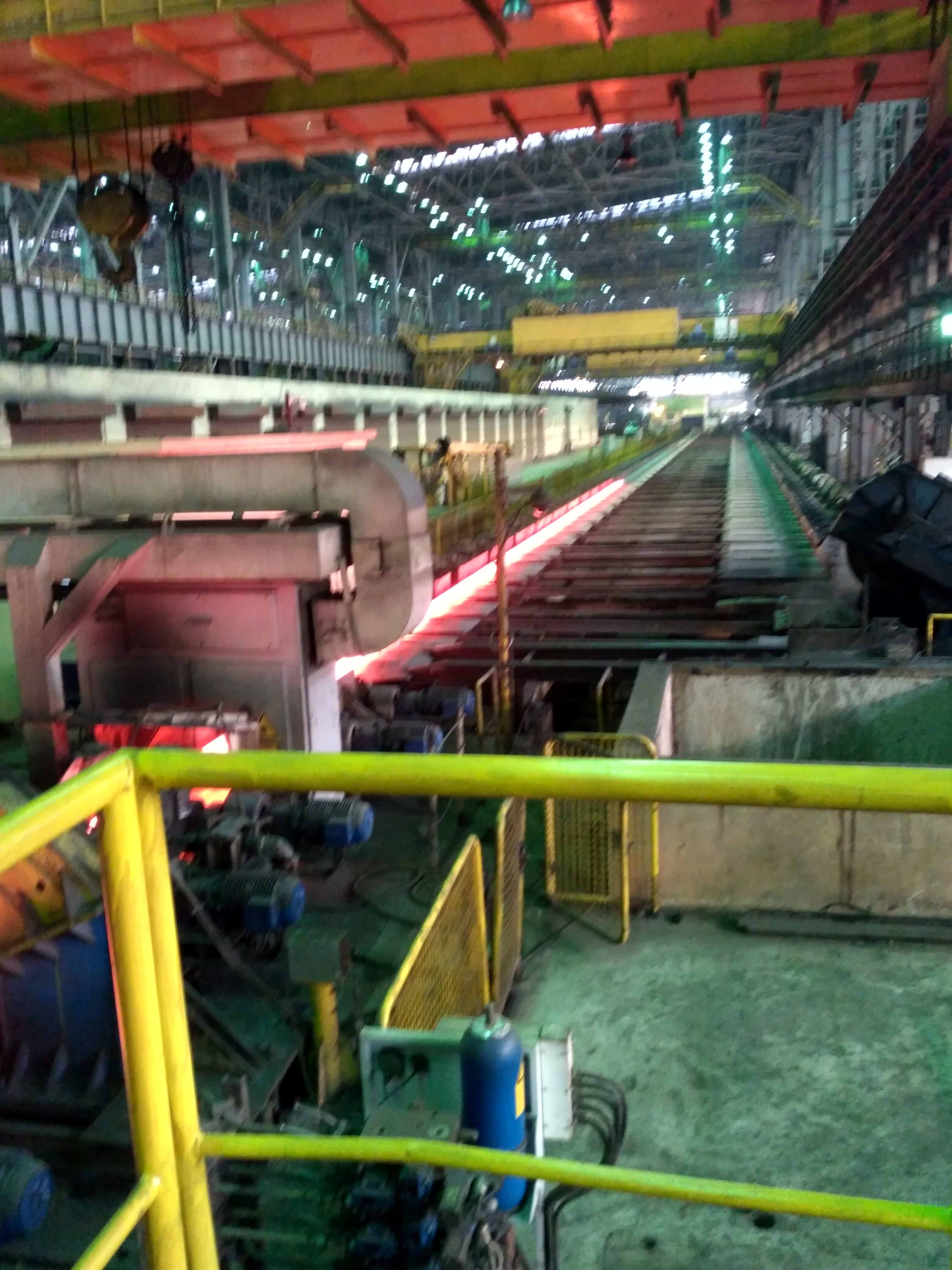Bhilai, Chhattisgarh: The Bhilai Steel Plant (BSP) is ramping up its production facilities to meet Indian Railways’ requirement of running high-speed trains, metro trains, doubling and gauge conversion of railway tracks as well as for track renewals and laying of new lines. The plant is also gearing up to meet the requirements of rails which will be used in the dedicated freight corridors. The plant has so far produced 11.65 lakh tonnes of rails in the current financial year and aims to produce 13.5 lakh tonnes by March end.
BSP, of the state-run public sector undertaking Steel Authority of India Limited (SAIL), has been supplying rails to Indian Railways for about six decades. Till now, it was the only company to supply rails to Railways, although Jindal Steel and Power Limited (JSPL) have also started making rails recently from their Raigarh unit in Chhattisgarh.
BSP commissioned 1.2 MTPA (million tonnes per unit) Universal Rail Mill (URM) in January 2017, and is now supplying the world’s longest 130 metre rail in single piece to Indian Railways. From its modern Universal Rail Mill equipped with state of the art equipment and facilities, the plant also fulfils the requirement of 260 metre rail panels by welding two 130 metre rail pieces at the new Rail Welding Line here.
Anirban Dasgupta, Director Projects & Business Planning of SAIL, who is also holding the charge of CEO the BSP, said if the Indian Railways requires, the plant will also be able to supply still longer rails up to the length of 520 metre for which additional facilities would have to be installed. Longer rails provide smooth running of trains, besides reducing the incidents of harm to railway tracks by removing the fish plates by miscreants. Thus it also improves safety in railway movement.
Besides, he said, the new mill is also being equipped with online head hardening facility to meet the Railways’ requirement of head hardened rails in the near future. Head hardened rails are used in Metro Rail projects. The plant has also developed and supplied the special quality NCC Rails (Nickel-Copper-Chromium) for Indian Railways for coastal areas of the country and thick web asymmetric rails for switch points—an import substitution item.
The plant has also developed vanadium alloyed rails and UTS 110 rails (a special type of rails) for higher axle loads, which would be ideal for use in the upcoming freight corridor projects. The recent trial runs of fast trains in the country have also been conducted in stretches of tracks where rails from BSP were used.
The Bhilai plant has rolled out the desired volume and quality of rails to meet the changing requirements, year after year from its Rail & Structural Mill (RSM), progressively improving standards to roll out world class rails as per stringent specifications of Indian Railways. This mill produces rails and it is equipped with online NDT (Non-Destructive Testing) equipment, laser straightness measurement, ultrasonic and eddy current testing machines, computer controlled automatic rail handling system and automatic yard mapping for rail storage.
The Bhilai Steel Plant is being modernised and expanded along with other integrated steel plants under SAIL with capacity enhancement of crude steel from 3.93 million tonne per annum (MTPA) to 7 MTPA. This included 1.2 MTPA capacity Universal Rail Mill (URM), which has taken the BSP’s total capacity to produce 1.8 MTPA, which is the largest production capacity for rails in any single location for a plant world over.
While SAIL’s BSP produces world-class rails, its Durgapur Steel Plant (DSP) is the only forged wheel producer in India for passenger coaches, wagons and locomotives. Together Rail and SAIL make a combination, which touches the life of every citizen of the country. Dasgupta said the company was working on improving further the quality of its rails, which included reducing the hydrogen content in rail steel.
Railways’ high-speed track needs being met by Bhilai Steel Plant
- Advertisement -

